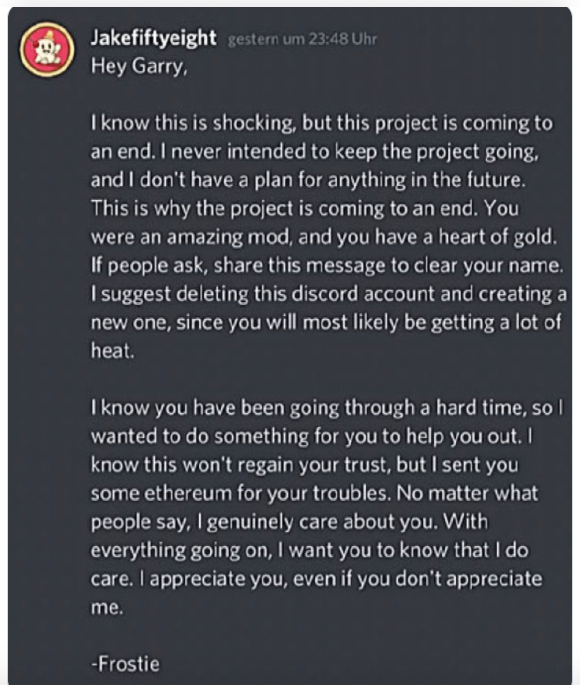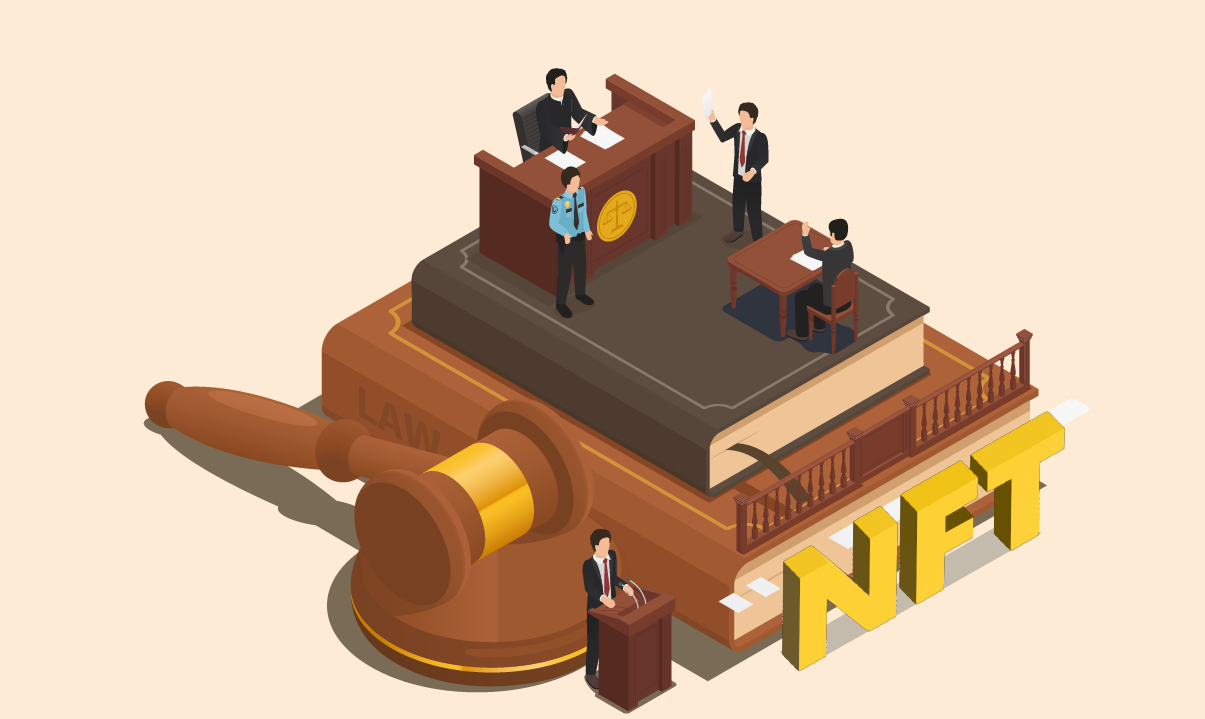It looks as though the days of rogue developers rug pulling and then disappearing with total impunity might be over. The Frosties NFT collection was one of the biggest rug pulls in NFT history, depriving investors of at least $1.1 million. In a landmark moment, the two 20 year olds behind the project have been charged with conspiracy to commit wire fraud and conspiracy to commit money laundering. If convicted, they could face up to 20 years in jail.

A notorious rug pull
The Frosties rug pull is the stuff of NFT infamy. A collection of 8888 ice cream scoop style characters, Frosties were more than just cute. The associated roadmap promised utility galore including a metaverse game, exclusive giveaways, NFT “breeding,” airdrops and whitelist spots for future drops. That might explain why all 8888 were sold within an hour, netting the developers over a million dollars earlier this year.
After just 3 hours the entire proceeds of the sale (356.36 ETH) were drained to a new wallet. All social media accounts and websites associated with Frosties vanished. The price crashed as Twitter users called Frosties out for what it was: a ruthlessly executed rug pull. In a shocking twist, one of the project leaders sent the following message on Discord, admitting that he had no plans to take the project any further and never did.

The ETH was transferred between wallets before being passed through Tornado. Given how these rug pulls usually proceed, that should have been the end. Nobody expected to hear about the Frosties team again, but this time things were different. The rugged investors spoke to law enforcement. Two claimed that they invested solely because of the roadmap and promises made on the Frosties website, the other felt that the collection would accrue value over time. Those broken promises - and the failure to deliver clearly specified rewards - paved the way towards a fraud charge.
A forensic investigation
Complaint documents name the two alleged culprits (who go by various identities online) as Ethan Nguyen and Andrew Llacuna. Both are Los Angeles residents. Law enforcement followed a long and painstaking trail of IP addresses, shared emails, transaction records and even Coinbase KYC documents to track the pair down. Of the multiple wallets used, one even had an ENS name containing a defendant’s first name.
Although Tornado is an effective way to skew transactions, investigators were able to follow the ETH from Tornado to the defendant’s Coinbase accounts (which is where those KYC documents came into play). This movement between wallets and the use of Tornado forms the basis for the money laundering charge. One of the defendants also bought a VPN to try and cover their tracks but the purchase appears on their credit card statement, contributing to the fraud charge.
This is the first federal prosecution case associated with NFTs but the precedent it sets means it’s unlikely to be the last. While the potential for fraud is often cited as a problem with cryptocurrency, one of the investigators in this case stated that the opposite is true. Mike Fasanello suggested that the blockchain is more transparent than traditional fiat transactions, making it far easier for law enforcement to track the alleged ruggers.

A landmark case for NFTs
At the time of their arrest, the pair were planning another project called EmbersNFT. It made all the same promises regarding utility and would (presumably) have ended in the same way as Frosties. Whatever the outcome of this case, it’s proof that teams can no longer simply vanish into thin air and face no consequences.

The news brought closure to those affected, with some users taking to Twitter and voicing their relief. One even claimed that their first ever NFT purchase was a Frosties, only for them to be immediately rugged and put off the space for life. Some will inevitably bemoan what feels like another step towards centralisation, but the NFT space could never exist as a Wild West frontier forever. There seems to be renewed legislative focus on NFTs every week, and this is just another example.
In many ways, this is a landmark case and one that will hopefully make future rug pullers think twice. Despite concerns, Web3 and the NFT space remain fundamentally decentralised. Law enforcement couldn’t take down the NFTs and they had to embark on a lengthy investigation to find the alleged culprits. All we’ve learned is that existing laws can be applied to NFTs and there’s a framework within which to prosecute scammers. If that makes the space safer, then it can only be a good thing.


